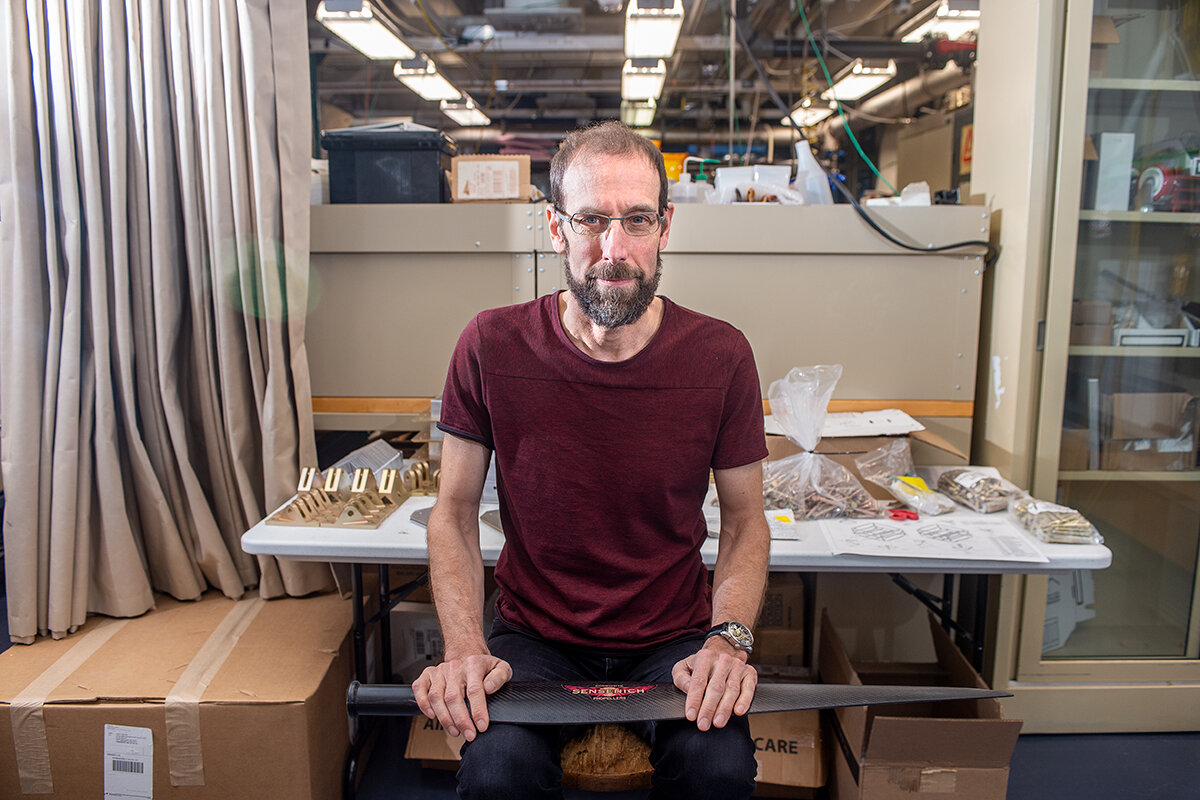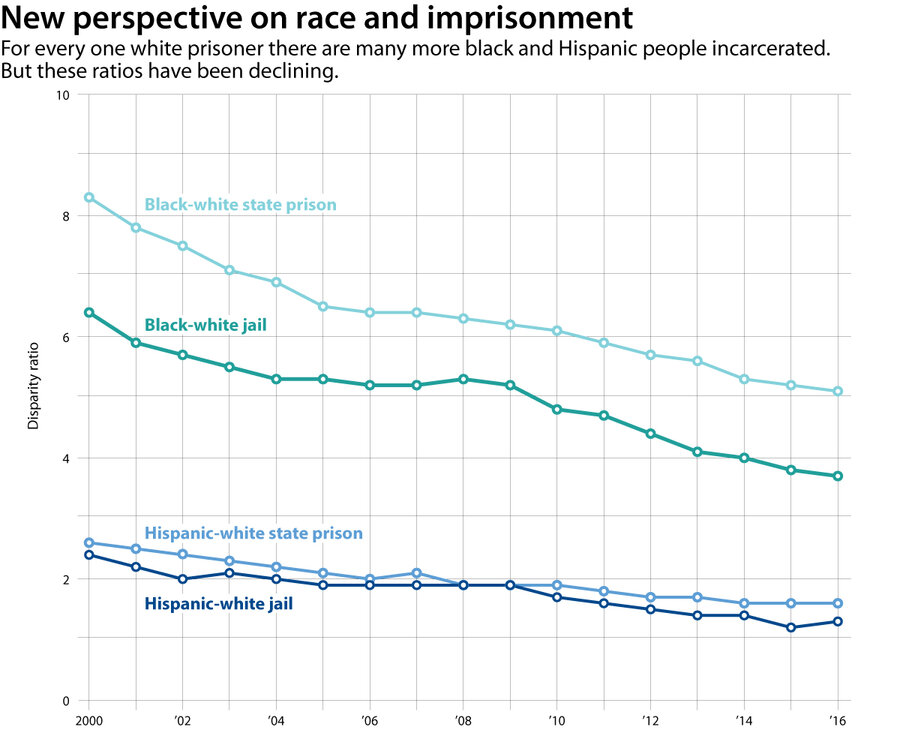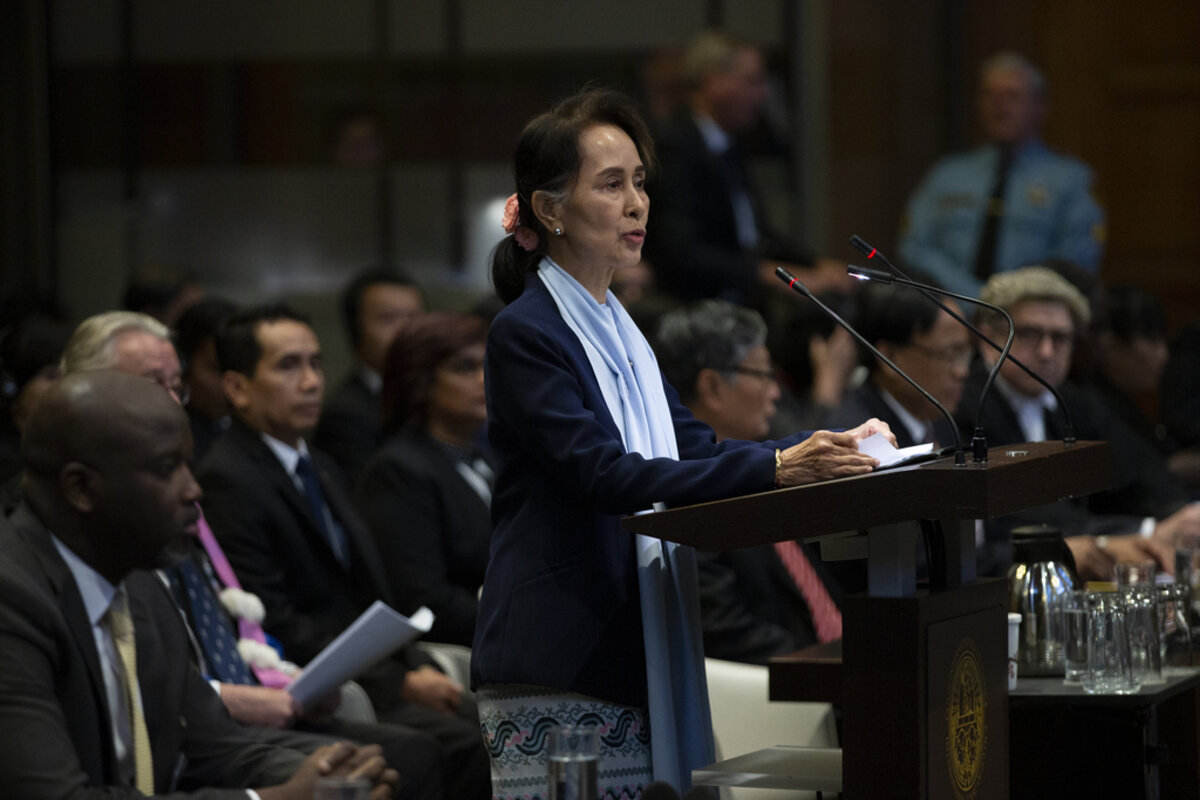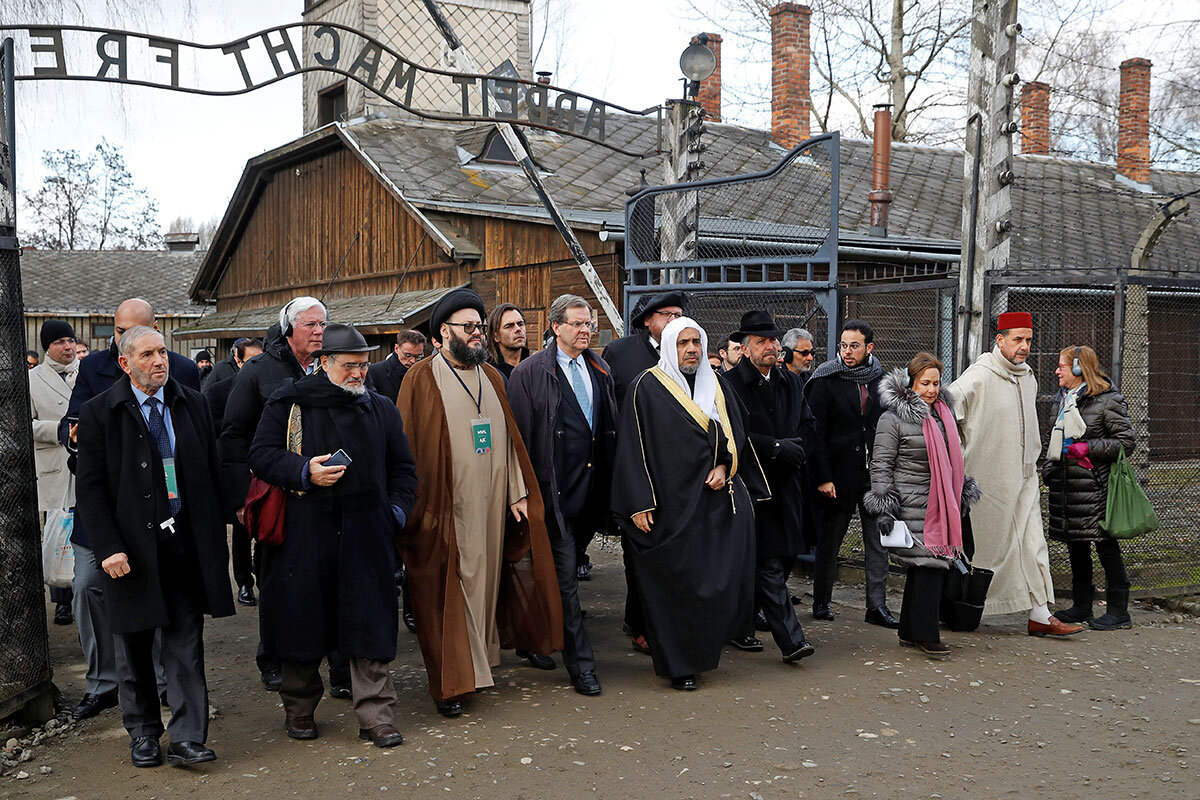Former congressional reporter Francine Kiefer was happy to cover the impeachment trial for us (even though it meant leaving sunny California). But the stringent crackdown on reporters is very different from her days staking out subway cars and the cafeteria for a good quote. She, of course, has persevered, but how do those limits affect Americans’ understanding of a historical event?
Monitor Daily Podcast
- Follow us:
- Apple Podcasts
- Spotify
- RSS Feed
- Download
 Yvonne Zipp
Yvonne Zipp
Today’s stories explore restrictions on media access during the impeachment trial, the moral hazards of a last-ditch solution to climate change, hints of progress in the racial gaps seen in the U.S. prison system, the transformation of a Hungarian village into a Hasidic pilgrimage destination, and a rapper who is defining beauty for herself.
Call it a job well done.
On Feb. 6, Bob Vollmer will report for duty as an Indiana land surveyor for the last time. The 102-year-old says he’s finally ready to enjoy retirement.
Instead of a gold watch, the World War II Navy veteran will retire with Indiana’s highest honor, the Sagamore of the Wabash, which he shares with David Letterman and Harry Truman.
His chosen profession has taken him all over his home state. Once he had to deal with a lieutenant of Al Capone, who built an illegal beachside fence (complete with metal tags that read: “Property of Chicago”).
“My secret is, I don’t care how mean a guy is. You’ve got to feel him out and find out what you might have in common,” Mr. Vollmer told Point of Beginning, a publication for surveyors.
His daughter retired before her dad, after a career as a schoolteacher. “I feel like I’m the slacker in the family,” she joked in a Torch newsletter published before Mr. Vollmer’s centenary. (It includes such gems as Mr. Vollmer’s beloved 1942 Willys jeep, which also saw action in the Pacific theater, and his practice of pulling hood ornaments off state-issued vehicles and replacing them with pencil sharpeners, so he’d have one handy.)
In terms of life lessons, Mr. Vollmer credits his father. “I try to be right with people,” Mr. Vollmer told NPR. “If anybody does anything for you, helps you in any way, be sure and say thank you.”












